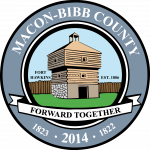During the Holiday Season, the Macon-Bibb County Fire & IT Departments would like to identify some turkey fryer, fire, and cyber safety tips to help protect you and your family. Have a Happy and Safe Holiday Season.
Remember: safety starts at home.
Turkey Fryer Hazards
- Many units easily tip over, spilling the hot oil from the cooking pot.
- If the cooking pot is overfilled with oil, the oil may spill out of the unit when the turkey is placed into the cooking pot. Oil may hit the burner or flames, causing a fire to engulf the entire unit.
- Partially frozen turkeys placed into the fryer can cause a spillover effect. This too may result in an extensive fire.
- With no thermostat controls, the units also have the potential to overheat the oil to the point of combustion.
- The lid and handles on the sides of the cooking pot get dangerously hot, posing severe burn hazards.
Important Turkey Fryer Safety Tips
- Turkey fryers should always be used outdoors a safe distance from buildings and any other flammable materials.
- Never use turkey fryers in a garage or on a wooden deck.
- Make sure the fryers are used on a flat surface to reduce accidental tipping.
- Never leave the fryer unattended. Most units do not have thermostat controls.
- If you do not watch the fryer carefully, the oil will continue to heat until it catches fire.
- Never let children or pets near the fryer even if it is not in use. The oil inside the cooking pot can remain dangerously hot hours after use.
- To avoid oil spillover, do not overfill the fryer.
- Use well-insulated potholders or oven mitts when touching pot or lid handles. If possible, wear safety goggles to protect your eyes from oil splatter.
- Make sure the turkey is completely thawed and be careful with marinades. Oil and water do not mix, and water causes oil to spill over causing a fire or even an explosion hazard.
- The National Turkey Federation (NTF) recommends thawing the turkey in the refrigerator approximately 24 hours for every five pounds in weight.
- Keep an all-purpose fire extinguisher nearby. Never use water to extinguish a grease fire. If the fire is manageable, use your all-purpose fire extinguisher.
Fire Safety Tips
- Be sure the fireplace or wood-burning stove has an adequate clearance (36”) from combustible surfaces.
- Have the chimney inspected annually and cleaned if necessary, especially if it has not been used for some time.
- Do not use flammable liquids to start or accelerate any fire.
- Keep a glass or metal screen in front of the fireplace opening, to prevent embers or sparks from jumping out, unwanted material from going in, and help prevent the possibility of burns to occupants.
- Don’t use excessive amounts of paper to build roaring fires in fireplaces. It is possible to ignite creosote in the chimney by overbuilding the fire.
- Keep flammable materials away from your fireplace mantel. A spark from the fireplace could easily ignite these materials.
- Before you go to sleep, be sure your fireplace fire is out. Never close your damper with hot ashes in the fireplace. A closed damper will help the fire heat up again & will force toxic carbon monoxide into the house.
- Never use a range or an oven as a supplemental heating device.
- If you use an electric heater, be sure not to overload the circuit.
- Avoid using electrical space heaters in bathrooms or other areas where they may come into contact with water.
- Keep young children away from space heaters, especially when they are wearing night gowns or other loose clothing that can be easily ignited.
- Frozen water pipes? Never try to thaw them with a blow torch or other open flame, otherwise the pipe could conduct the heat and ignite the wall structure inside the wall space. Use a hand held dryer for thawing.
- If windows are used as emergency exits in your home, practice using them in the event fire should strike. Home escape ladders are recommended.
- Be sure every level of your home has a working smoke alarm, and be sure to change batteries twice a year and test alarm monthly.
- Plan and practice a home escape plan with your family.
Cyber Safety Tips
Before you start your holiday shopping, remember to STOP. THINK. CONNECT. Make sure security measures are in place, understand the consequences of your actions, and behaviors and enjoy the benefits of the Internet.
Keep a Clean Machine
All the devices you use for shopping – including smartphones and tablets – should have up-to-date software including security software, operating systems, programs and apps.
When in Doubt, Throw it Out
Links in email, tweets, posts, and online advertising are often the way cybercriminals compromise your computer. If it looks suspicious, even if you know the source, it’s best to delete or if appropriate, mark as junk email.
Think Before you Act
Be wary of communications that offer amazing deals that sound too good to be true, implore you to act immediately – including those about a problem with an order or payment or ask you to view the website via a provided link.
Get Savvy about Wi-Fi Hotspots
Don’t share personal or financial information over an unsecured network (a connection that doesn’t require a password for access). Using the direct web access on your phone (via a 3G/4G connection) is safer than an unsecured wireless network when on your mobile device.
Make Sure the Site is Legitimate
This includes a closed padlock on your web browser’s address bar or a URL address that begins with shttp or https. This indicates that the purchase is encrypted or secured. For new sites, check online reviews.
Protect your Personal Information
Be alert to the kinds of information being collected to complete the transaction. Make sure the information requested is only that needed to complete the transaction. Only fill out required fields on checkout forms. Check the website’s privacy policy. Make sure you understand how your information will be stored and used.
Use Safe Payment Options
Credit cards are generally the safest option because they allow buyers to seek a credit from the issuer if the product isn’t delivered or isn’t what was ordered. Credit cards may have a limit on the monetary amount you will be responsible for paying. Never send cash through the mail or use a money-wiring service.
Keep a Paper Trail
Save records of your online transactions, including the product description, price, online receipt, terms of the sale, and copies of email exchanges with the seller. Read your credit card statements as soon as you get them to make sure there aren’t any unauthorized charges. If there is a discrepancy, call your bank and report it immediately.

